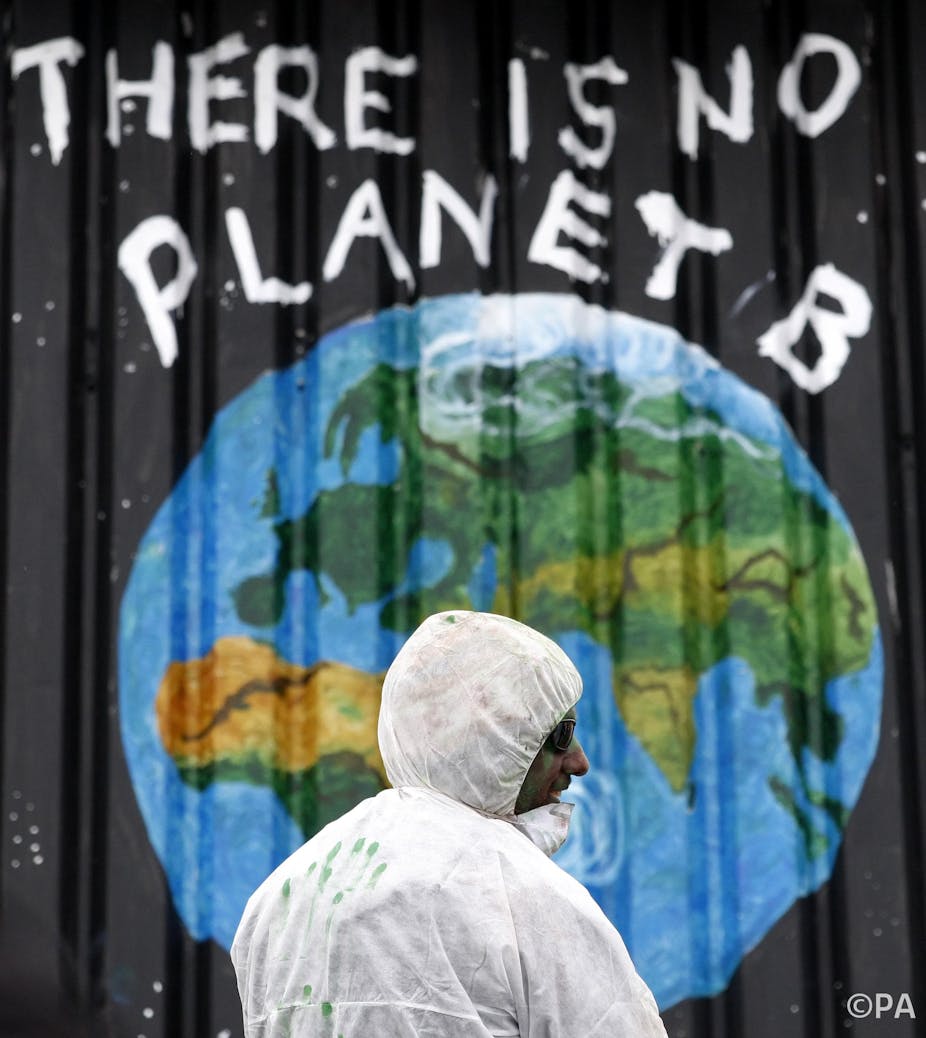It is difficult to make a conclusive link between human-caused climate change and the record drought in California, record freezes in parts of Canada and the US, Britain’s wettest-ever winter and Australia’s hottest summer.
But there’s no doubt that they have pushed climate change back up the agenda, and will add pressure to the need for a deal at the Paris climate talks next year.
Directly experiencing such extreme weather can make a (small) difference to public sentiment too. Researchers at Cardiff University found that those affected by flooding in Wales in 2012 were more likely to believe climate change is happening now than those who hadn’t (74% versus 65%).
There is similar recent research in the US, which reveals that for every degree the temperature rises above the 12-month average, there is a 7% increase in belief in climate change, especially amongst those without strong convictions. Cold snaps can have the opposite effect.
But an aspect of this weird weather that gets less discussion is how the widespread uncertainties around the nature of such extreme weather, and of climate science itself, hand golden opportunities to those sceptical of climate change to spread doubt.
Who’s nobody, and what do they know?
A classic example is the recent debate on the BBC Today Programme between Lord Lawson of the Global Warming Policy Foundation and Professor Sir Brian Hoskins of Imperial College. Lawson managed to use the phrase “nobody knows” three times in the first minute, and criticised mainstream climate scientists for “pretending they know when they don’t”.
Lawson himself was widely criticised for misunderstanding the science and misrepresenting the scientists. But the general public often misunderstand uncertainty, interpreting it as a complete rather than relative lack of knowledge.
Some scientists have found it helpful to make the distinction between what might be called “school science” (as popularised by the likes of Brian Cox), which is a source of solid facts and reliable understanding, and “research science” where uncertainty is ingrained and is often what drives the direction of further investigation.
So when sceptics stress the “nobody knows” narrative, they are misrepresenting the existence of any uncertainty at all as meaning that, for example, no action to reduce carbon emissions is necessary. It’s the nature of climate science that there are lots of uncertainties, but this doesn’t mean scientists know nothing, or are simply speculating. But it can be difficult to do this in a sound bite.
Some uncertainty is standard
Rather, they try to assess what degree of certainty they have about different aspects of the science. For example, authors of the IPCC reports spend a lot of time trying to assess the degree of uncertainty and level of confidence they have in each of their statements. These are difficult concepts to get across to the general public and to legislators.
Take for example the headline finding of the last IPCC report in September that the authors are now “95% certain that humans are mostly to blame for temperatures that have climbed since 1951”. On the day the report was published, one IPCC author was asked by a BBC presenter: “so what do the other 5% of scientists believe?” In other words, there was a confusion between what the authors of the IPCC report collectively had concluded was true with a very high degree of certainty, and what percentage of scientists were in agreement with the statement.
For scientists, 95% certainty is taken as a gold standard, likened to the degree of confidence scientists have in decades’ worth of evidence that cigarettes cause lung cancer. So the same degree of confidence holds for something like melting of Arctic sea ice or the amount the world has warmed, but there is less confidence in for example explaining the lack of increase in global surface temperatures since 1998.
Scientists and journalists need to get better at explaining the way these uncertainties work. They don’t know everything but they know enough to be able to assess the risks of not acting.
A matter of risk
During the Today programme the presenter also implicitly introduced the concept of risk management, comparing 95% scientific certainty to a 95% chance, or risk. With high odds of 95% – or even equal odds of 50% – it would seem to make sense to take action to lower the risk.
Framing the climate challenge as risk assessment has been gaining considerable traction among some politicians. Lawson’s response to the question was to argue that even if there is a problem of global warming, it will have only marginal effects.
It is worth asking how he can be so certain of this low likelihood, what his level of confidence is and on what science it is based. This is what would be required by any risk assessment: he would have to show how he had come to this risk evaluation and why he was so confident in it, when so many other scientists are saying the impact could be huge. In any case, merely saying “nobody knows” doesn’t make his case.

